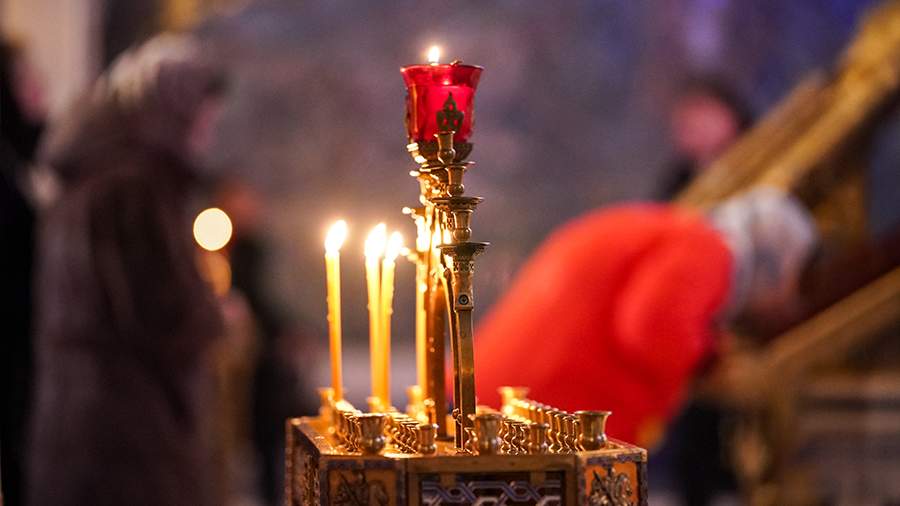January 9 - Stepan's labors: history, traditions and omens
Every year on January 9, the Orthodox Church honors the memory of the Apostle from 70 Stephen, the first martyr who shed blood for the Christian faith. In 2025, the celebration falls on Thursday. In the folk calendar, the holiday is called Stepan's labors. About his history, traditions and omens, read in the material "Izvestia".
Stepan's labors in 2025 - history
After the descent of the Holy Spirit on the apostles, the disciples of Christ went to different countries to preach about the coming of the Savior. Through their efforts, many people received holy baptism and became part of the young Christian Church. To care for the flock, as well as to support orphans, widows, and the poor, the apostles proposed to elect seven deacons. One of them was Stephen, who lived in Jerusalem.
Stephen was a zealous servant of the Lord, and had the gift of eloquence. He supported his sermons, which always attracted the attention of the people with miracles and signs. In addition, the apostle repeatedly won the disputes of the Jewish teachers of the law, proving the truth of his faith. His influence grew, and soon the saint was recognized as an archdeacon, the first among the seven deacons.
Stephen's success aroused the envy of the Pharisees. They decided to slander the saint, accusing him of insulting God and the prophet Moses. At the trial, the deacon openly accused the Jews of killing Christ, the Messiah whom the Jewish people were waiting for, and persecuting his prophets. For this he was sentenced to stoning. During his execution, despite the agony, Stephen prayed for his executioners, and after his death, mass persecution of Christians began in Jerusalem.
Stepan's Day on January 9 - traditions
In Russia, the day of the memory of St. Stephen was called Stepan's Day. The martyr was honored as the patron saint of horses - the main helpers and breadwinners of peasant families. Therefore, on the holiday the owners fed the animals to the fullest, brushed their manes and tidied up their stalls. To keep the horses healthy and obedient, they were fed "through silver". To do this, a silver coin or other precious metal object was thrown into a bucket of water.
St. Stephen's Day was also called Stepan's labors. This is due to the fact that on the holiday the owners of livestock agreed with shepherds about future grazing. Candidates were selected during feasts, where shepherds brought drinks and owners brought snacks. If communication was easy, a verbal agreement was made.
Men on Stepan protected the house from otherworldly forces. For this purpose, aspen stakes were hammered in along the perimeter of the yard. It was believed that aspen does not allow evil spirits to approach the dwelling.
Unmarried girls on January 9 "buried the sadness", which, according to popular beliefs, prevented them from finding a suitor. They took a deep bowl and filled it with well water, whispering about their sorrows and worries. The bowl was left overnight in a cold place, and in the morning they broke the resulting ice into small pieces.
On the holiday also fortune-telling for a quick marriage: poured out on the table grains and spread them out in pairs. If there was a "lonely" grain left, one could not expect a marriage proposal in the coming year.
Stepan's labors: what can and cannot be done
The Orthodox Church does not establish special prohibitions on Stepan's day. Believers can visit the temple, pray at home or spend time with relatives.
In Russia, various superstitions and prohibitions were associated with Stepan's labor. Women tried to finish with needlework before sunset. According to the beliefs, after dark, the evil one can confuse the threads, and with them the fate of man.
Since the holiday fell on Christmas Eve, it was forbidden for the owners to refuse treats to carolers. It was believed that the one who would not show hospitality could bring poverty and other misfortunes upon himself. The food on Stepan was generally treated very reverently. The leftovers after the meal were not thrown away, but distributed to the needy. Crumbs from the table were poured into bird feeders so that they would not go to waste. People believed that the one who was wasteful of food could face serious trouble.
Folk omens on January 9
On Stepan's Day, our ancestors watched nature, hoping to predict what the new year will be like. Snowfall on the holiday promised an abundance of berries and mushrooms in the summer, and frost on the trees - a good harvest of grain. If it snowed in flakes, they prepared for a prolonged period of bad weather.
Also on Stepan's labors attention was paid to horses. If the animals snorted while drinking, they waited for sunny and windless weather. Restless behavior of animals spoke about the approaching snowstorm. If the horses went to sleep on the ground, not on the bedding, it was understood that the thaw would soon come.
Earlier "Izvestia" told how in Russia celebrated Svyatki.
Переведено сервисом «Яндекс Переводчик»




